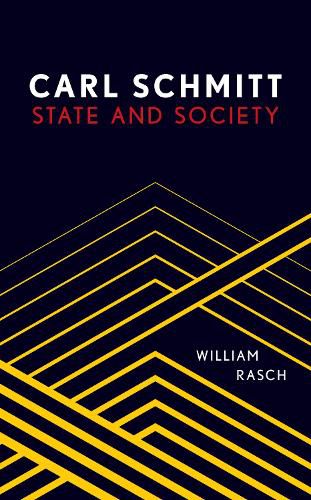Readings Newsletter
Become a Readings Member to make your shopping experience even easier.
Sign in or sign up for free!
You’re not far away from qualifying for FREE standard shipping within Australia
You’ve qualified for FREE standard shipping within Australia
The cart is loading…






This important new book places Carl Schmitt’s critique of liberal political theory in a broader historical context than is usually done. His belief in the centrality of the European state since the seventeenth century derives from various sources, including medieval (Scholastic) theology and nineteenth century (post-Hegelian) social and political theory. Schmitt’s famed ‘political theology’ aims at justifying the necessity of a strong secular state as the safeguard of a political community against the encroachment of legally protected interest groups that shield themselves behind pre-political rights. William Rasch neither condemns nor champions Schmitt’s various attacks on liberalism, but does insist that the tension between ‘society’ as the realm of individual rights to pursue private pleasures and the ‘state’ as the placeholder for something traditionally called the common good is a conundrum that is as important now as it was during the Weimar era in Germany. Reappraisal of some of the pillars of liberal dogma are as much in order as are fears of their demise.
$9.00 standard shipping within Australia
FREE standard shipping within Australia for orders over $100.00
Express & International shipping calculated at checkout
This important new book places Carl Schmitt’s critique of liberal political theory in a broader historical context than is usually done. His belief in the centrality of the European state since the seventeenth century derives from various sources, including medieval (Scholastic) theology and nineteenth century (post-Hegelian) social and political theory. Schmitt’s famed ‘political theology’ aims at justifying the necessity of a strong secular state as the safeguard of a political community against the encroachment of legally protected interest groups that shield themselves behind pre-political rights. William Rasch neither condemns nor champions Schmitt’s various attacks on liberalism, but does insist that the tension between ‘society’ as the realm of individual rights to pursue private pleasures and the ‘state’ as the placeholder for something traditionally called the common good is a conundrum that is as important now as it was during the Weimar era in Germany. Reappraisal of some of the pillars of liberal dogma are as much in order as are fears of their demise.